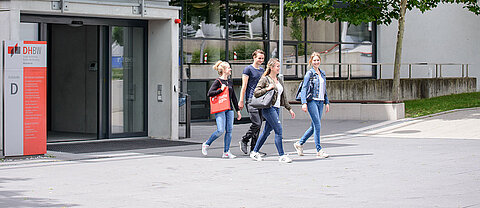1974: Beginnings as a University of Cooperative Education
On 01.10.1974, the two Berufsakademien or Universities of Cooperative Education in Mannheim and Stuttgart launch the first pilot project for higher education with integrated industry practice in Germany. With 41 students and 16 companies, the foundations are laid for the DHBW's career-integrated course of study in Mannheim.

